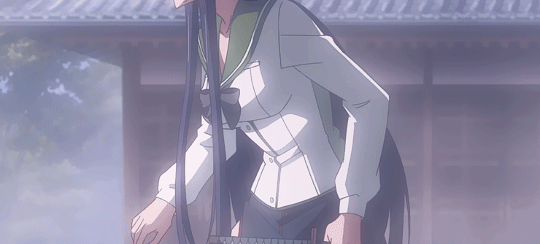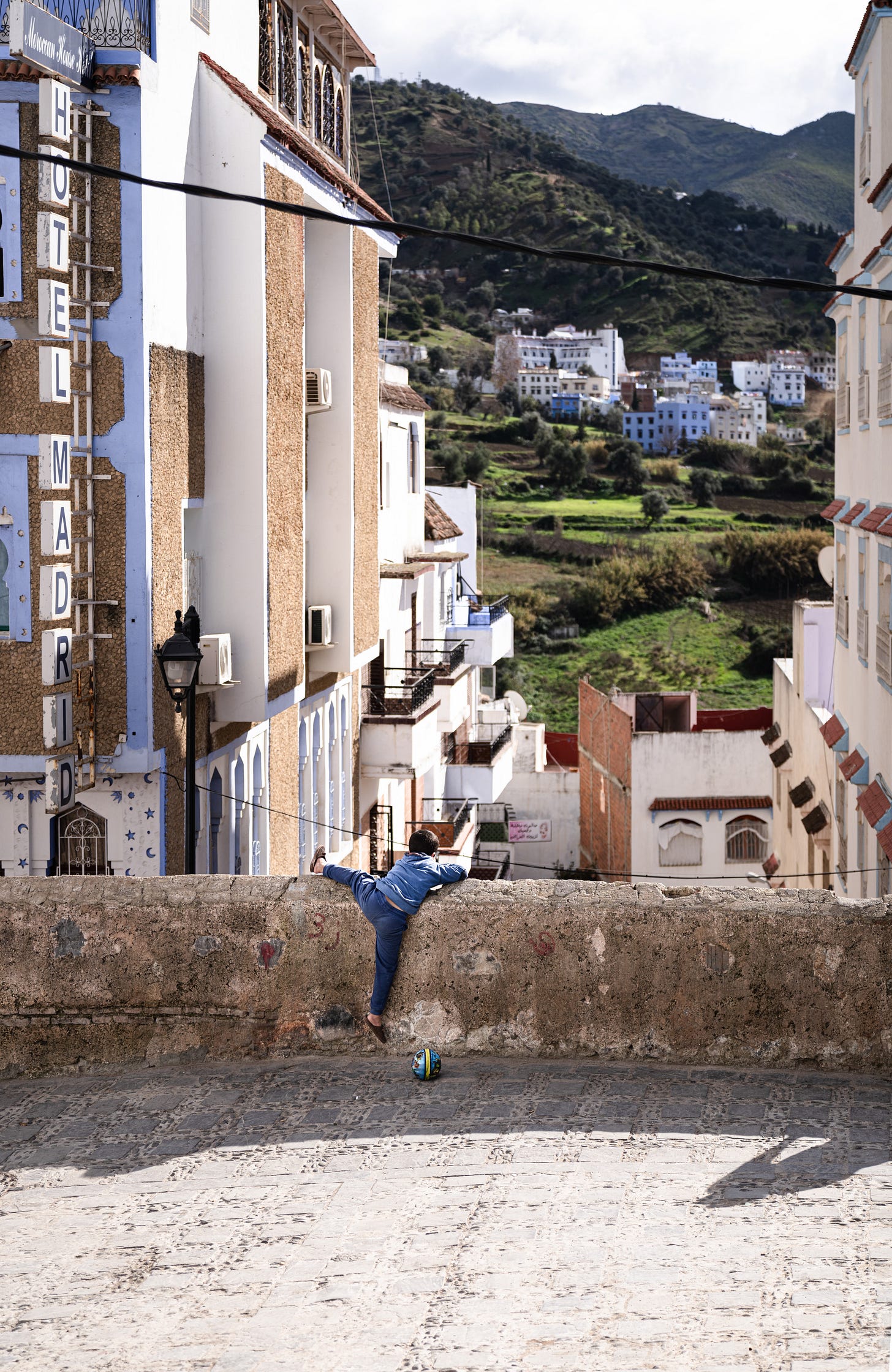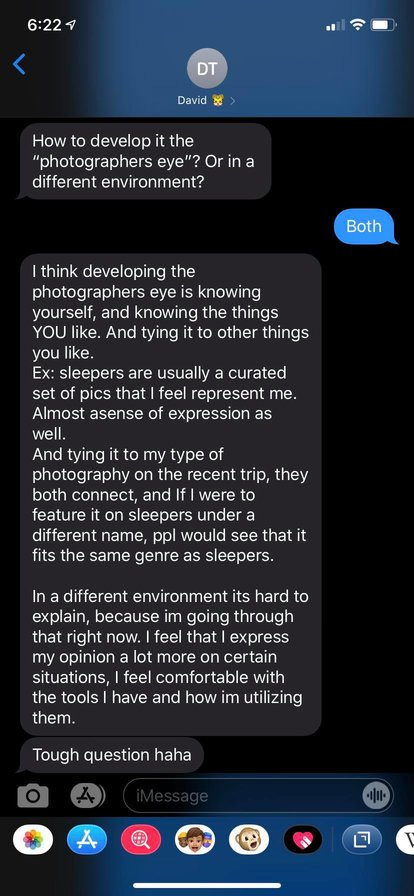The Kaizen Newsletter - #32 (04-02-2020): 4 lessons I learned from my photographer friends and how you can apply it to anything you're learning

One thing I've been enjoying in the past few years is to travel with a photographer (I mean everyone has at least 1 photographer friend they know). Not only will you have really nice pictures of yourself to post on Instagram, but more importantly, it just makes the trip a lot more interesting. When you travel with photographers, they can make any mundane activities into something super interesting. For example, just walking in the streets becomes fun because they can capture, from your perspective a really random event, and make it magical.
By default, they will tend to explore different areas so they can have pictures that set themselves apart from everybody else. Even just a different view or different angle can make a huge difference. So your chances to see different areas of a city is a lot higher than if you were just a "normal tourist".

picture taken by @david.cellini
Although all of the above is super awesome, what I enjoy the most about travelling with my photographer friends are just seeing them in their element working. I mean if you think about it, how often can you say that about any other job? It's very rare that you can just sit next to someone and observe them doing their job.
One thing that I observed at the end of my trip is that even if I didn't necessarily want to become a better photographer, just by osmosis - being surrounded by three photographers during my whole trip made me a better photographer.
So I thought to myself "how is that possible?" and broke it down to 4 different lessons and how anyone, yes even you, can apply these when trying to learn to improve in something you're trying.
Copy
Whenever one of my friends would position themselves to take a picture, I would immediately get my phone out and put myself in a similar position and take a picture next to them. At first, I just did it by instinct because in my head I was thinking "Well, if he's taking a picture, it must be because it's a good picture, so I should probably take it as well". But after doing this a few times, I would then ask myself questions like "why did he think this would be a good picture" and analyze what made this picture "good".

picture taken by @williamtopa
When you're starting off and trying to learn something new, copying is the best way to learn. You don't have a carved out style at the beginning, so you don't need to worry about the fact that you're "stealing" from the author. Just concentrate on learning.
Copying people that you admire or that inspire you is super beneficial for the following reasons:
It gives you best practices by osmosis. You don't necessarily know the reasons why you're doing it this way or know what are the best practices, but by copying, you are teaching your muscles to perform certain actions, and eventually, they will become second nature for you. This is why whenever you want to learn something new, the first thing people would tell you is to find something you like and try to reproduce it. If you're learning web design, then take a website that you think is really cool and try to re-create it. If you're learning the piano, then find a piano cover that you like and play it. Not only are you learning by doing, but you're also ingraining best practices AND putting in reps all at the same time.
Another reason why it's good to copy is that you will surely make mistakes at the beginning, so when you copy someone else's work, you can then compare yours to the original and analyze what you did wrong compared to the original author. This happened a lot during my trip since I usually wasn't quick enough to either position myself correctly or quickly enough to get my phone out and it's pretty clear that my pictures are ALMOST good, but there's still something missing.
Quantity
One thing I'm always impressed by is how all of my photographer friends come home with like 1000 pictures and in the end, they really only keep around 50 or even less they consider "good".
I think this is not novel for most of you, but you should be aiming for quantity and not quality when you're just starting off. You want to build that muscle that you've never trained before and the only way to do that is to get in some reps.
We've all heard of the story where a class is separated into two. Half the class is evaluated on taking the best picture, whereas the other class is evaluated on the number of pictures they take (1000 being an A). And at the end of the semester, the best pictures taken were mostly from the kids that were tasked to take A LOT of pictures.
And the story I started with is the perfect example. If you concentrate too much on the PERFECT picture, then you might be missing out on other moments. Whereas if you're just trigger happy and just take a bunch of pictures, you're bound to find really nice gems after you've taken a lot of pictures.
Observe
One thing that truly amazed me was whenever my friend Cheetah would take pictures. For some reason, every time he would click his shutter, I would always be wowed by the moments he would capture. In my head I would just tell myself that he just "gets it" and that's why he was so good. For your reference, here are some of his pictures that he took from the trip.
The reason why developing your eye is so important in anything your doing is actually what sets you apart from others in your field. In what makes you really unique, so I find it super valuable to developing that.
But what if you're just a beginner, how exactly do you develop "your eye" in whatever you're doing? Well, I kinda answered it in my explanation above, but in Cheetah's words "it's knowing yourself, and knowing the things YOU like."

In practical terms, it just means being observant. Meaning whenever you're creating or consuming, try to observe what makes you like that piece of art.
If you're doing product design and you really like Twitter's ios app, then ask yourself what exactly attracts you from that app. If you're making music, then what kind of sounds that make you go "holy shit this is sick". Then the more you go, the more you'll be able to train your "eye" to look for that sort of cue. That's how you develop your "eye".
You don't need the best gear
Check out the below picture.

picture taken by @davldtran
Sick, right? This was taken by my friend Cheetah using his film camera. Can you really tell that this was taken by a camera that's worth no more than 200$ (usually good cameras with lenses cost upwards of 1K+)? Yeah, me neither.
And I think this just goes to show that you definitely don't need the best gear available, especially when you're just starting out.
You hear plenty of stories where people can't start because they don't have enough money to buy the high-tech gear (I'll admit, I'm guilty of this from time to time), but the reality is that it's just excused.
You just need something that is functional. In the beginning, what's more, important is to just take action and publish. In the end, isn't the creator a lot more important than the gear?
That being said, Cheetah argued that confidence plays a huge role in taking action. So if have enough money and you think that buying a better setup will inspire you to take more action, then you should definitely go for it. This also goes for the opposite as well. If you feel that investing in a better setup puts more pressure on you to deliver better results, maybe you should just go shoot with a smaller setup. In the end, you want the best setup so that you can have fun, but just remind yourself that it shouldn't be used as an excuse either.
I’ve had two big trips since the start of my newsletter, and I always learned something new from each one of them.
I find it super useful to look back at the trip you made and try to get something out of it. Makes for the best kind of souvenir - One that doesn’t cost anything and that you can apply for the rest of your life!
Hopefully, you also got something out of this and the next time you’re trying to learn something new you can apply a few (or all) of these lessons that I shared today,
Now, on to the newsletter.
Weekly Favourites
📃 Articles
Investor Updates by Daniel Gross - It's funny but even if I don't have my own company, I thought this was a super interesting article. I'm thinking that this can also be applied to everyone who's just trying to improve in their everyday lives and be used to keep yourself accountable as well. Your "investors" could simply be your peers or your close friends. I'm definitely going to find a format and start doing it myself. I will share once done! If you want an actual example of someone who's doing "investor" updates, you should definitely check out this one done by Dennis, founder of Coco a new productivity app that is still in beta.
Fast - CEO Updates - This is very similar to investor updates, but instead Dom, CEO and Founder of Fast, is sharing almost weekly updates on how his company is progressing. Super insightful to see a CEO at work, what he's thinking, the challenges his team is facing and how they're solving them.
📚 Book
Death Note: Special One Shot - Death Note is BY FAR my favourite anime of all time, so I was super excited to see that a one shot was out. This special definitely brought you back to the world of Death Note, which is what I enjoyed the most. You see some returning characters and it's also kept it's same style of drawing as well, which was excellent. I really like the character development of the main protagonist, but the end disappointed me a bit. All in all, if you're a fan, then you HAVE to read it. If it's the first time you hear of Death Note, I definitely recommend either reading the manga or just watch the anime.
🎙 Podcast
Sriram Krishnan on the Off the Chains podcast - I only discovered Sriram a couple of weeks ago, but I have no idea why it took me this long. He's by far one of the brightest people I've discovered and has also worked at Twitter, Snapchat and Facebook all in pretty high product positions. I think the most interesting parts of this podcast was him comparing all three big companies and the different values each company had. Definitely one of the most interesting podcasts I've listened to in a while.
🐦 Tweets
Always trying to improve as a PM, so I always appreciate executives sharing what they believe a good PM should be doing. This is from Figma's CEO.


Loved this tribute from John Gibson (goalie of the Anaheim Mighty Ducks) for Kobe and Gianna. Beautiful mask.





Da dum tss. 🥁Also I never knew how badly I needed a baby toucan in my life.


🎧 Music
Albums
Funeral - Lil Wayne - I'll be honest and say I'm not a big Wayne fan, but still sharing since I know he's pretty big.
Songs
🙏 Shoutouts
Shoutout to Abhi Vyas for the sick call we had a few weeks ago. Definitely changed the way I think of my goals, what is truly important to me and what I should be doing to get there.
👋 End Note
If you want to know what I'm up to now, you can check it on my website here.
If you enjoyed the Kaizen Newsletter, then feel free to share it with your like-minded friends!
Feedback is always appreciated, so let me know what you liked and what I can improve on by replying to this email.
If you see any cool articles, links, tweets, stories or podcasts that you think are interesting, feel free to share as well at alex@alexhughsam.com
